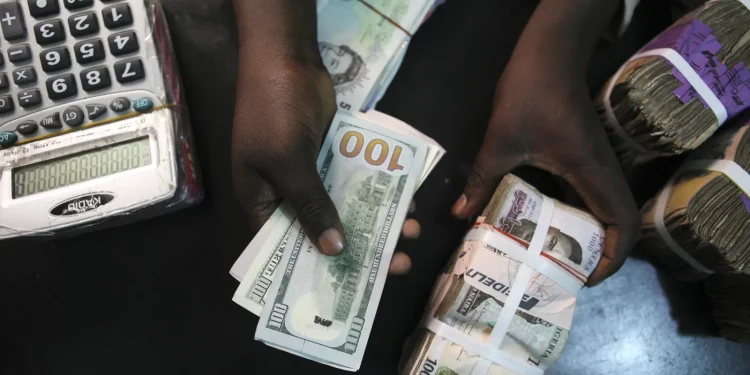Lagos, August 20, 2023 – Nigeria’s economic landscape is facing fresh turbulence as the Naira plummeted to a concerning N905 against the dollar after hitting a low of N925 earlier this week.
The sharp devaluation followed the release of a JP Morgan report, casting a spotlight on Nigeria’s net foreign exchange reserves, which were revealed to be a mere $3.7 billion. This revelation has sent shockwaves across the financial sector and ignited a debate on the nation’s economic resilience.
Some Background to Naira’s Volatility
Nigerians are grappling with a shifting financial landscape, and the peer-to-peer (P2P) market has emerged as a key player in the evolving narrative. The allure of dollar-backed stablecoins (USDT) on this platform has prompted many tech-savvy individuals to flock to this alternative financial avenue for transactions and hedging.
This digital adaptation empowers users to convert their Naira into stablecoins denominated in dollars, facilitating seamless cross-border transfers, international transactions, and commerce in ways that circumvent the traditional banking channels.
While the benefits are clear, concerns about the P2P market’s unregulated nature have begun to surface. This arena, driven by innovation, also raises questions about security and market integrity.
Economic Predictions Amidst FX Challenges
JP Morgan’s report has shifted the spotlight back onto Nigeria’s foreign exchange challenges. The bank’s assessment that Nigeria’s net FX reserves are considerably lower than prior estimates has caught the attention of both economists and industry insiders.
A growing overall balance of payments deficit is further amplifying FX pressure, accentuating the precariousness of the nation’s economic situation.
Efforts by the Central Bank of Nigeria (CBN) to stabilize the Naira and curb inflation through various measures, including cash reserve ratio adjustments and exchange rate regime shifts, have had mixed results. The market initially responded positively but ultimately succumbed to dollar dominance.
With the Nigerian National Petroleum Company (NNPC) securing a $3 billion emergency loan from the African Export-Import Bank (Afreximbank), there is a glimmer of hope for currency stability.
Nevertheless, as the CBN aims to ensure market integrity with the commencement of the Price Verification System (PVS) Portal, scepticism prevails, given the currency speculation that continues to challenge their efforts.
Economic Realities and Uncertain Future
The nation’s economic challenges are mirrored by real-life consequences, as fuel prices skyrocket, and inflation reaches an 18-year high. The steady depreciation of the Naira since its float announcement by the Federal Government and CBN has prompted concern among economic experts.
Amid this, the apex bank remains committed to stabilizing prices and exchange rates. However, doubts linger, with sceptics questioning the effectiveness of limited FX resources in the face of Nigeria’s intricate economic intricacies.
As Nigeria navigates its path forward, it is confronted with the pressing question of whether it can successfully navigate the stormy waters of FX pressures and economic uncertainties.
The Naira’s fate, intertwined with regulatory efforts and market forces, remains uncertain, leaving both experts and citizens eagerly watching for signs of stability or renewed volatility in the days ahead.












